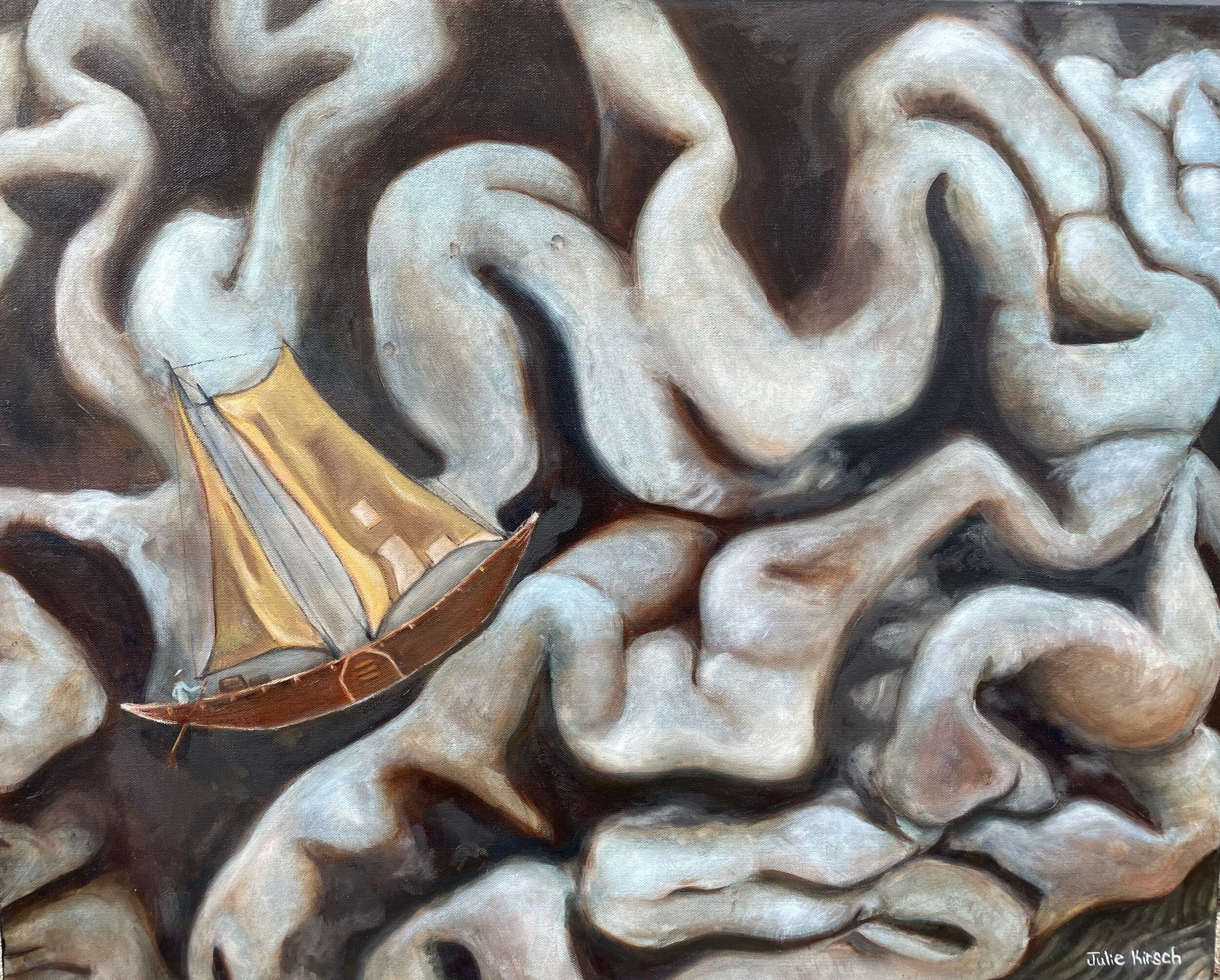There are numerous interesting and intriguing brains on display at the University of Buffalo’s Brain Museum, and I highly recommend a guided tour of the museum to anyone in the Western New York area. But the brain that had the most profound effect upon me was undoubtedly that of a person who had suffered from Alzheimer’s disease. This brain (which I will hereafter refer to as the “Alzheimer’s brain”), is visibly ravaged by the disease. Anyone who knows someone who has suffered from Alzheimer’s disease, or who has spent time in the memory impaired unit of a nursing home, knows just how devastating the disease can be at a personal level. In the early stages of the disease, memories begin to fade but loved ones are still recognized. However, as the disease progresses, loved ones are forgotten and the patient—the person—is lost altogether. I recall visiting my late grandmother in a nursing home towards the end of her life and mourning the loss of her person. I had a difficult time identifying her among a group of residents seated together in wheelchairs in front of a television, she had so visibly changed. Not only did she fail to recognize me (that had happened long ago), but she was unable to function—to use language, to communicate, to advocate for herself. She was alive, but her person—her mind— had long since vanished. And her suffering was, and had been, profound.
Around the time when I had visited the brain museum, I read a fascinating and moving article, “The Lost Mariner,” published by Oliver Sacks in The New York Review. The article told the story of a man, Jimmie R., one of Sacks’ patients, who had suffered from a form of amnesia (due to Korsakoff Syndrome) that kept him trapped in the past. After meeting with Jimmie R., Sacks wrote in his notes, “He is, as it were, isolated in a single moment of being, with a moat or lacuna of forgetting all round him…. He is man without a past (or future), stuck in a constantly changing, meaningless moment.” The title of Sacks’ article was inspired by Jimmie R., who, after being drafted in 1943, served in the navy. (Incidentally, “The Lost Mariner,” is now also a beautiful, short film by Tess Martin inspired by Sack’s article.)
Reading the article, I was reminded of my own late grandfather who had served in the Merchant Marine during WW2 and had suffered from dementia towards the end of his life. Like Jimmie R., my grandfather had been trapped in a moment, disconnected from his loved ones and earlier experiences. Without our memories, who are we? Sacks, who was poignantly aware of this, begins his article with Luis Buñuel’s reflection:
“You have to begin to lose your memory, if only in bits and pieces, to realize that memory is what makes our lives. Life without memory is no life at all…. Our memory is our coherence, our reason, our feeling, even our action. Without it, we are nothing…. (I can only wait for the final amnesia, the one that can erase an entire life, as it did my mother’s….)”
When looking at the Alzheimer’s brain, I could see gulfs, valleys—rivers—where healthy brain tissue had been eaten away by the disease. To my amazement and horror, the physical Alzheimer’s brain closely corresponded with the personal or experiential Alzheimer’s mind; a memory that had disappeared was tissue that had been eaten away. When looking at this brain, I could “see” (with my mind’s eye) a lost and lonely sailor, like my late grandfather, unknowingly sailing towards annihilation.
I dedicate this piece to my late grandmother and grandfather, whom I love and miss, and patients and families everywhere who have suffered from Alzheimer’s disease and dementia.
